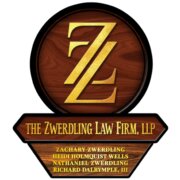Best Insurance Defense Lawyers in Kansas
Share your needs with us, get contacted by law firms.
Free. Takes 2 min.
Or refine your search by selecting a city:
List of the best lawyers in Kansas, United States
About Insurance Defense Law in Kansas, United States
Insurance defense law in Kansas focuses on representing insurance companies and their insureds in legal disputes. These often involve claims arising from car accidents, property damage, professional liability, or other incidents covered by insurance policies. Attorneys in this field work to ensure that insurance companies fulfill their obligations under the policy terms, defend against fraudulent or exaggerated claims, and represent policyholders in lawsuits where the insurer has a duty to defend.
In Kansas, insurance defense lawyers are well-versed in both state insurance regulations and litigation practices in state and federal courts. Their primary goal is to protect the interests of insurance providers while ensuring policyholders' rights are respected.
Why You May Need a Lawyer
There are several scenarios where individuals or companies may benefit from legal assistance in insurance defense, including:
- Being named in a lawsuit after an accident or incident covered by insurance
- Disputing an insurance claim denial or limitation by the carrier
- Suspecting insurance fraud or misrepresentation
- Complex liability claims where multiple parties are involved
- Settlement negotiations that require legal expertise
- Facing bad faith allegations from policyholders
- Navigating compliance with Kansas insurance laws and regulations
Engaging a lawyer early can help prevent costly errors, ensure compliance with all applicable deadlines, and provide a strategic advantage in negotiations or court proceedings.
Local Laws Overview
Insurance defense in Kansas is governed by a combination of state statutes, insurance commission regulations, and case law. Key aspects include:
- Comparative Fault System: Kansas follows a modified comparative fault rule, meaning if a claimant is 50 percent or more at fault for an incident, they cannot recover damages. This impacts how insurance defense attorneys approach liability disputes.
- Statute of Limitations: Most personal injury claims in Kansas must be filed within two years of the incident. However, the time limits can vary depending on the type of claim.
- Bad Faith Insurance Laws: Kansas law recognizes claims against insurers who unreasonably refuse or delay payment on valid claims. Defense attorneys must be prepared to address bad faith allegations.
- Kansas Insurance Department Oversight: All insurance policies and practices must comply with the standards set by the Kansas Insurance Department, which enforces consumer protections and fair claims handling.
Additionally, Kansas courts have specific procedural rules for civil litigation that influence how insurance defense cases are handled, including requirements for discovery, mediation, and trial.
Frequently Asked Questions
What does an insurance defense lawyer do?
An insurance defense lawyer represents insurance companies and their policyholders when claims are made or lawsuits are filed. They handle all aspects of the defense, from investigation to court appearances, negotiations, and settlements.
Who pays for the insurance defense lawyer in Kansas?
Usually, the insurance company provides and pays for the defense lawyer when the claim arises out of a covered event under the policy. However, in certain disputes, policyholders may need to retain their own counsel.
What types of cases do insurance defense lawyers handle?
They handle cases involving auto accidents, premises liability, property damage, construction defects, professional liability, employment disputes under EPLI policies, and more.
Can an insurance company deny a defense to its policyholder?
An insurer may deny a defense if the claim is outside the scope of coverage or if exclusions apply. However, wrongful denial can lead to a bad faith claim against the insurer under Kansas law.
What is a reservation of rights letter?
It is a written notification from the insurer agreeing to defend the policyholder while reserving the right to deny coverage later, depending on the findings in the lawsuit.
How long does an insurance defense case typically take in Kansas?
Case duration varies. Simple cases may resolve in months, while complex claims involving multiple parties or significant damages can take several years, particularly if they go to trial.
What is comparative fault, and how does it affect my case?
Comparative fault reduces the amount of compensation a claimant can recover based on their degree of responsibility for the incident. If the plaintiff is 50 percent or more at fault in Kansas, they recover nothing.
What happens if I disagree with the insurer's decision on my case?
You can seek a second opinion from an independent attorney, request mediation or arbitration, or file a complaint with the Kansas Insurance Department.
Is mediation required in Kansas insurance disputes?
Many courts encourage or require mediation before trial to help parties resolve the dispute without lengthy litigation, but it depends on the specific court rules involved.
What is bad faith insurance in Kansas?
Bad faith occurs when an insurer unreasonably denies, delays, or underpays a valid claim. Policyholders can take legal action if they believe an insurer acted in bad faith.
Additional Resources
People seeking more information or assistance can explore the following resources:
- Kansas Insurance Department - Regulates insurance companies and handles consumer complaints.
- Kansas Bar Association - Offers legal information and attorney referrals.
- Kansas Judicial Branch - Provides access to court rules, forms, and dockets for civil cases.
- American Bar Association - Includes general insurance law resources and lawyer directories.
Next Steps
If you are facing a legal issue related to insurance defense in Kansas, consider the following steps:
- Identify the details of your insurance policy and correspondence with the insurer
- Organize all relevant documentation, such as claim forms, denial letters, and incident reports
- Consult with an experienced insurance defense attorney to review your case and discuss your options
- Engage with reputable resources, such as the Kansas Insurance Department, for additional guidance
- Understand your rights and obligations under Kansas law before making any major decisions
Taking prompt action and seeking quality legal advice in the insurance defense field can make a significant difference in the outcome of your case.
Lawzana helps you find the best lawyers and law firms in Kansas through a curated and pre-screened list of qualified legal professionals. Our platform offers rankings and detailed profiles of attorneys and law firms, allowing you to compare based on practice areas, including Insurance Defense, experience, and client feedback.
Each profile includes a description of the firm's areas of practice, client reviews, team members and partners, year of establishment, spoken languages, office locations, contact information, social media presence, and any published articles or resources. Most firms on our platform speak English and are experienced in both local and international legal matters.
Get a quote from top-rated law firms in Kansas, United States — quickly, securely, and without unnecessary hassle.
Disclaimer:
The information provided on this page is for general informational purposes only and does not constitute legal advice. While we strive to ensure the accuracy and relevance of the content, legal information may change over time, and interpretations of the law can vary. You should always consult with a qualified legal professional for advice specific to your situation.
We disclaim all liability for actions taken or not taken based on the content of this page. If you believe any information is incorrect or outdated, please contact us, and we will review and update it where appropriate.
Browse insurance defense law firms by city in Kansas
Refine your search by selecting a city.














